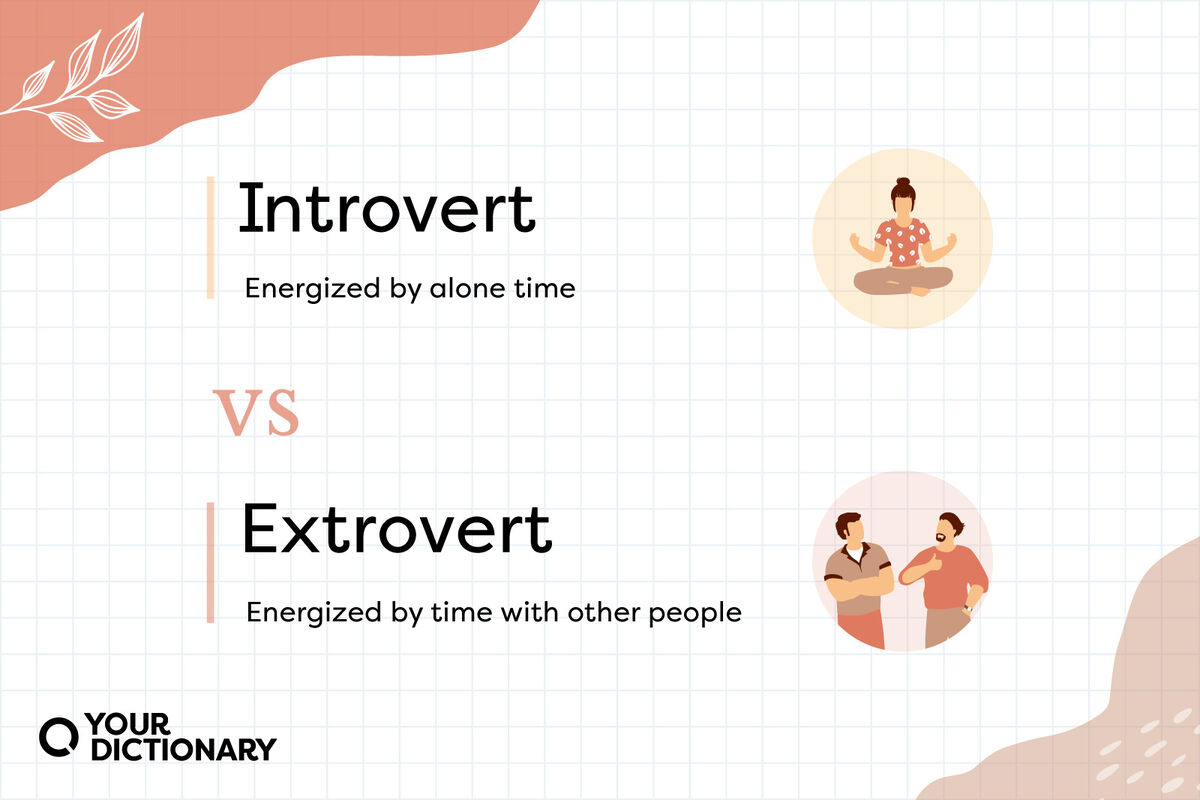
Are you an introvert or an extrovert? The question seems simple, but there’s a lot more to the introvert vs. extrovert debate than whether you like loud parties and concerts. While no one is a true introvert or extrovert, understanding the differences between the two can help you determine which plans you should keep and which ones you should cancel (and why canceling feels oh-so-good).
An Introvert Gains Energy From Alone Time
People who identify as introverts feel more energized when they have some time alone. The word introvert itself comes from the Latin introvertere, meaning “to turn to the inside.” That’s not to say introverted people don’t enjoy the company of others — they just need some downtime before (and probably after) a social event to decompress.
You Might Be an Introvert
There are lots of psychometrics and personality tests you can take to determine exactly how introverted you are. But in general, most introverts:
- feel mentally and physically tired after a social event
- prefer to work independently, rather than in a group
- are reflective about their feelings and reactions
- have a small group of close friends (whom they’ve probably known for years)
- take time to warm up to new people
- don’t necessarily feel lonely when they’re alone
An Extrovert Gains Energy From Socializing
On the other hand, extroverts feel more energized from being around people. The Latin prefix extra- means “out,” meaning that extroverts “turn to the outside” for their energy. While introvert appeared in English in the mid-17th century, its antonym extrovert was popularized by Carl Jung’s theory of personality types in the early 20th century. Extroverts don’t mind a little downtime, but they’d like to get back onto the dance floor ASAP.
You Might Be an Extrovert
Although no two extroverts are the same, the majority of them:
- feel happy and satisfied after a social event
- prefer to work in a group, rather than individually
- like to talk about their feelings and reactions
- have a large group of friends
- make friends quickly and easily
- feel lonely and sad when they’re alone
Ambiverts and Omniverts
Most people find that they’re somewhere in between true introverts and extroverts. They feel happy and energized with their friends, but a little more reserved when they’re in a big crowd. Or, they love meeting new people, but need to spend some time alone before venturing out again. If you fall in the spectrum of personalities between introvert and extrovert, you may describe yourself as an:
- ambivert - someone who is balanced between both introvert and extrovert, and never feels either extreme
- omnivert - someone who can go back and forth between introvert and extrovert, depending on the situation
Which One Is Better?
While a combination of both introverted and extroverted traits is ideal, there’s no “better” personality to have. It’s all about knowing yourself and how to recharge when you need energy. And just as importantly, you need to know how other people feel on the spectrum of introvert vs. extrovert. Your introverted friend may just need some time to recharge before going out with you, while your extroverted friend may need some extra communication to feel comfortable in your friendship.